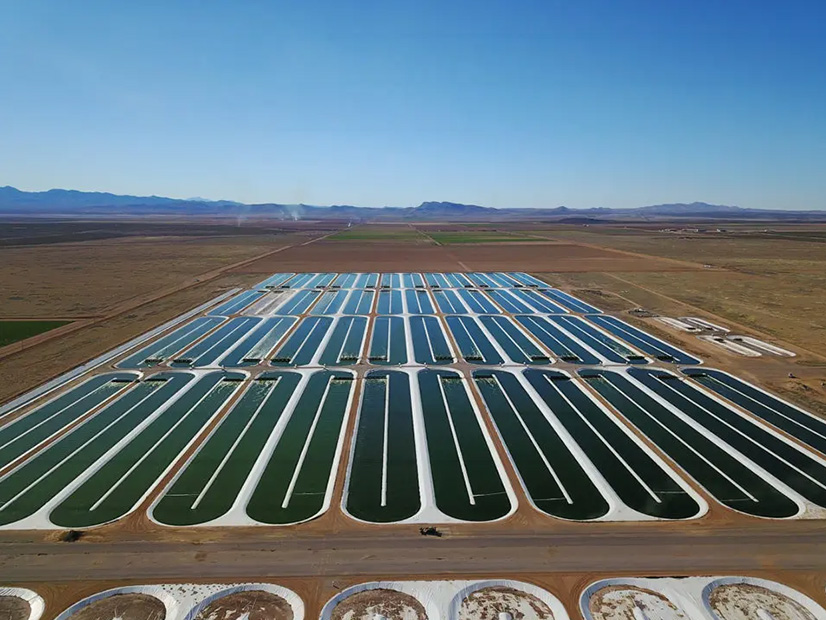
The U.S. Department of Energy (DOE) said last week that it will invest almost $34 million in bioenergy technology in a bid to lower the country’s reliance on fossil fuels.
The investment will pay for 11 projects managed by both universities and private companies to explore using municipal solid waste (MSW) and algae to create low-carbon biofuel, biopower and bioproducts.
“From food waste to yard trimmings, biomass technology is converting our everyday trash into low-carbon fuel for planes and ships while cutting costs and supporting our critical transportation sector,” Energy Secretary Jennifer Granholm said in a statement Tuesday. ”The companies and universities leading these projects will ensure that our cutting-edge biofuel technologies reduce carbon emissions, create new jobs up and down the supply chain, and are made in America by American workers.”
A total of $18.7 million will go to six projects researching algae farming. The projects “will look into diverse strains and farming practices of algae and explore new ways to improve their growth.”
According to Global Algae Innovations of Hawaii, a beneficiary of the funding, algae can be used to create products such as polymers, protein for human consumption, spirulina and biofuels. The company says that use of algae can also reduce deforestation, save water and reduce reliance on pesticides. The funding will help the company research “enhanced algae productivity in CO2 direct air capture cultivation.”
“We need transformational, innovative technology to mitigate the most severe impacts of climate change,” Sen. Mazie Hirono (D-Hawaii) said. ”Global Algae Innovations on Kauai is at work on technology that would create energy from algae, and this new federal funding will help this local company continue its groundbreaking work.”
About $15 million will go to five projects researching conversion of MSW, which typically includes materials such as household trash, construction waste and wastewater treatment sludge. The DOE release notes that using MSW “has significant potential to divert large volumes of garbage from the landfills to the refinery.”
The DOE’s Bioenergy Technologies Office website says one benefit of utilizing MSW is that it is “available now without land-use change, and in many cases their utilization helps to address the unique and local challenges of disposing of them.” It also notes that the current level of waste in the U.S. is “unlikely to diminish in volume in the near future,” making MSW a dependable investment.
In addition to creating biofuels, the conversion process of MSW and algae can also produce other valuable materials for industrial use, such as plastics, fertilizers, lubricants and chemicals.
The transportation sector generates the largest amount of greenhouse gas in the country, the DOE said, and certain sectors, such as aviation and marine transportation, “face barriers to electrification” because of the difficulty of powering them with electricity.
The use of sustainable aviation fuel (SAF), made from MSW, is one solution to the problem. “SAF currently results in an emissions savings of up to 80% compared to conventional jet fuel,” Airlines for America President Nicholas Calio said. SAF is similar in chemistry to traditional jet fuel.
The $15 million in MSW funding will go to five institutions.
Cascadia Consulting Group will research a “statistically rigorous, deep dive nationwide characterization of municipal solid waste and selection of technologies enabling production of conversion-ready feedstocks.” University of Maryland will research a “systematic characterization of variability in MSW streams to identify critical material attributes for fuel production.”
Lehigh University will study an “integrated LIBS-Raman-AI system for real-time, in-situ chemical analysis of MSW streams,” while North Carolina State University will research “AI-Enabled hyperspectral imaging augmented with multi-sensory information for rapid/real-time analysis of non-recyclable heterogeneous MSW for conversion to energy.” AMP Robotics will receive funds to study an “artificial neural network for MSW contamination characterization.”
The algae funding will go to the University of California, San Diego for research into “enhanced production of algae lipids and carbohydrates for fuel and polyurethane precursors;” Colorado State University will research “advancing algal productivity through innovation in cultivation operation and strain traits (ADAPT-COST);” Scripps Institution of Oceanography at UC San Diego will research “ecological monitoring technologies to enhance large-scale microalgae cultivation, stability and productivity;” Arizona State University will research “direct air capture integration with algae carbon biocatalysis;” and the University of Toledo will research “minimizing organic carbon losses to improve net productivity in direct air capture cultivation.”
The funding is part of the Biden administration’s commitment to getting the U.S. to net-zero emissions by 2050.


